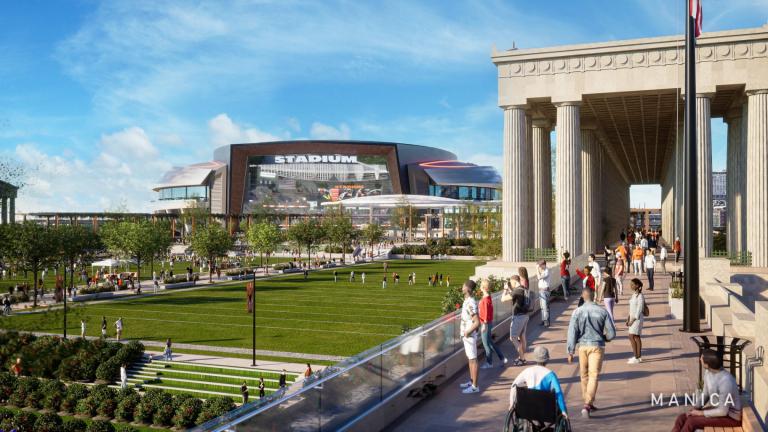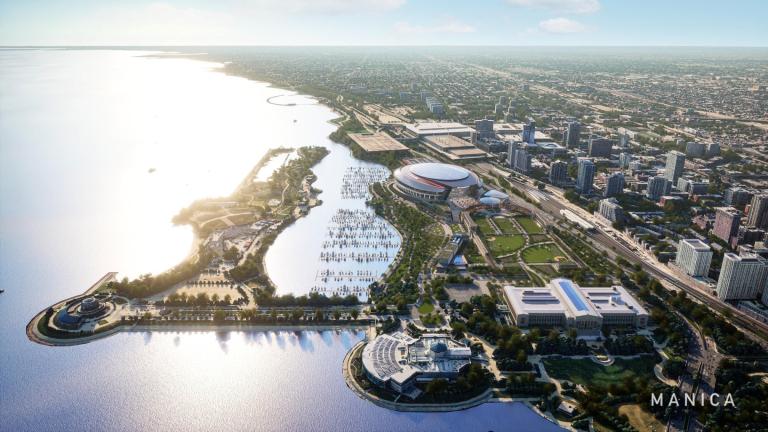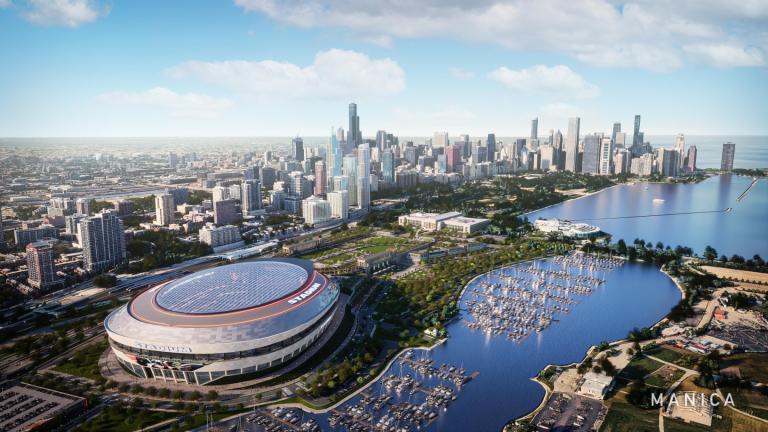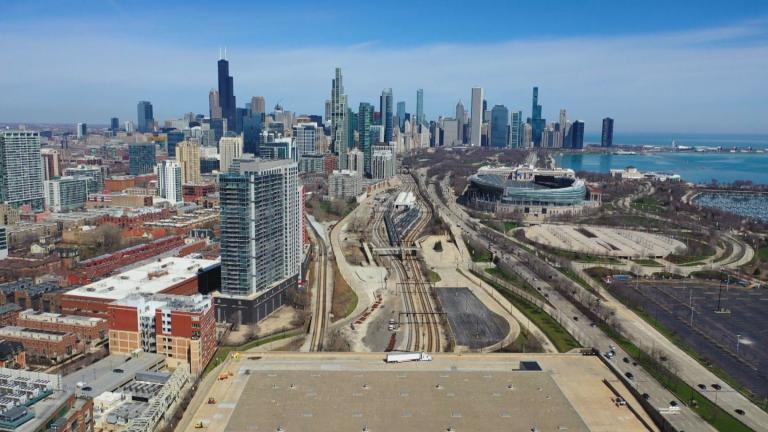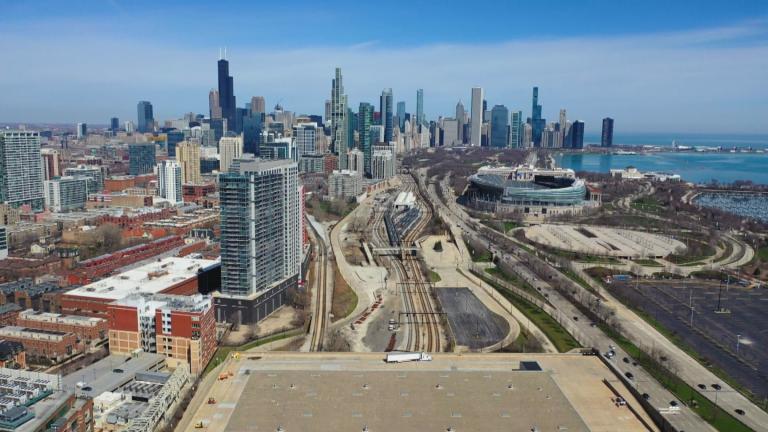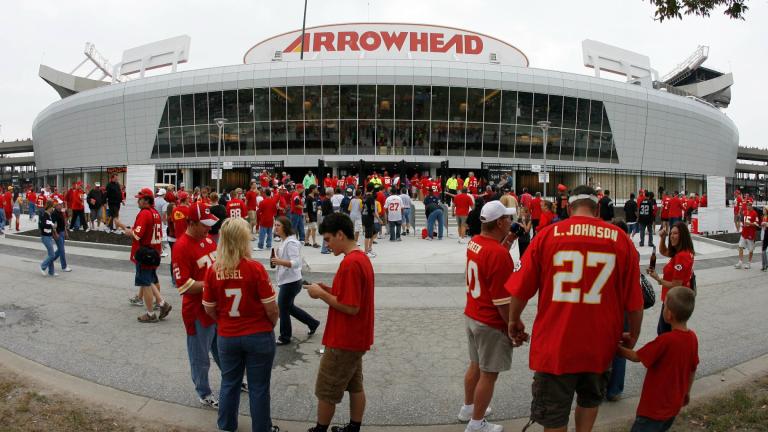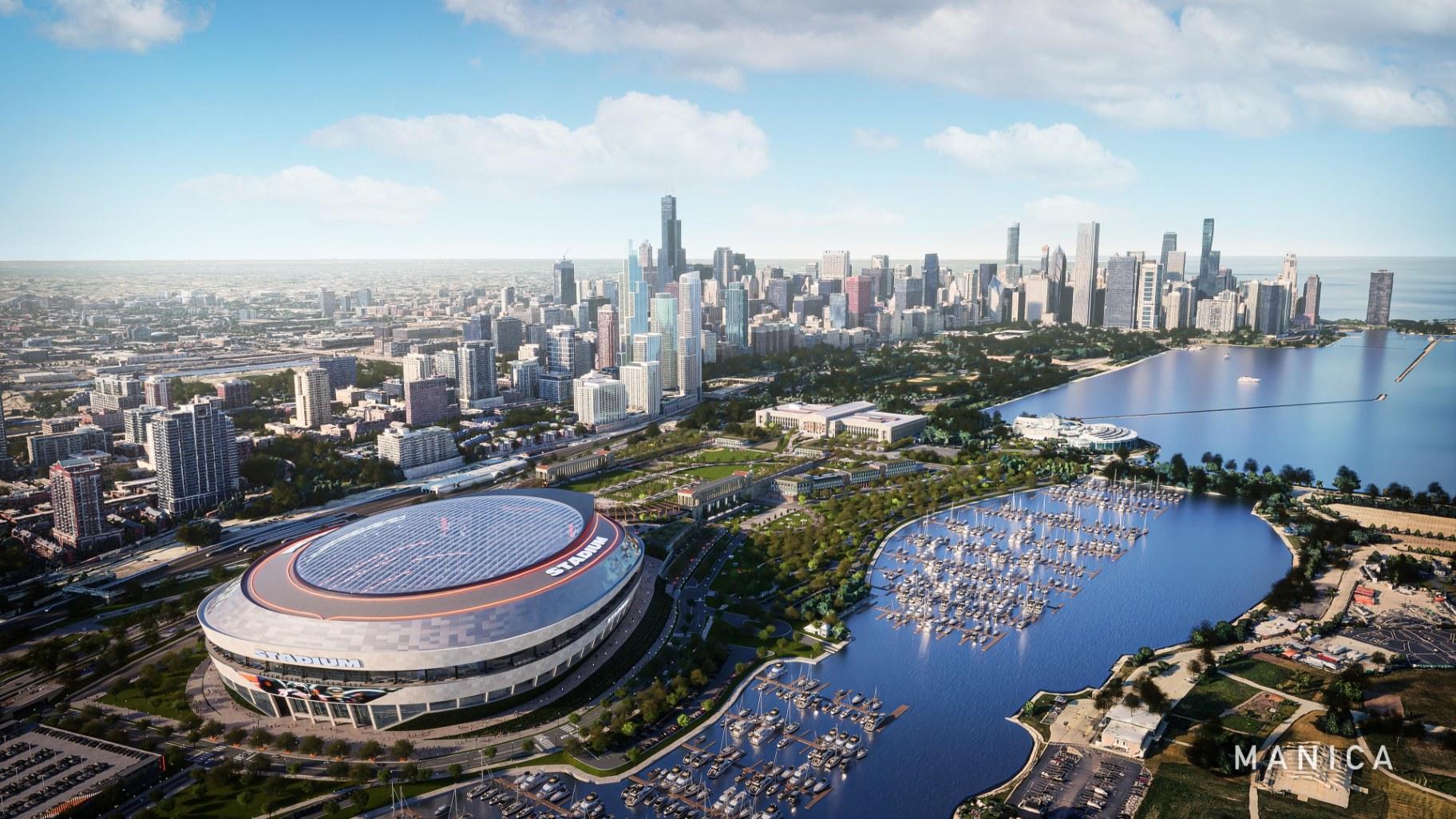 A rendering of the proposed new stadium for the Chicago Bears on a redesigned Museum Campus. (Credit: Chicago Bears)
A rendering of the proposed new stadium for the Chicago Bears on a redesigned Museum Campus. (Credit: Chicago Bears)
Illinois state lawmakers funded plenty of pet projects in the state budget they passed Wednesday morning, but a new lakefront stadium for the Chicago Bears wasn’t one of them.
Despite lobbying from Bears’ executives and Chicago Mayor Brandon Johnson, state legislators punted any decision on the stadium to fall’s veto session.
While financing for the project remains in doubt, opponents of the Bears’ plan have sent a unequivocal “hands off” message regarding any use of lakefront property for private interests.
In a statement issued Wednesday, the conservation organization Openlands called Chicago’s lakefront one of the “most far-sighted promises ever made by an American city ... anchored in the expectation of a lakefront for the people, unencumbered by obstruction and commercial enterprise.
“Any lakefront stadium for the Chicago Bears breaks this promise,” Openlands said.
The Bears’ sweeping proposal for the lakefront site includes newly created park space on Museum Campus, which the organization has pointed to as a win for the public.
New green space isn’t the same as preserving and protecting the lakefront for all of its users — including wildlife, Openlands said.
The Lakefront Protection Ordinance of 1973 not only ensures “lakefront parks and the lake itself are devoted only to public purposes” but also that the “life patterns of fish, migratory birds and other fauna are recognized and supported.”
“On the issue of birds alone, a stadium of this scale and design would have dire implications for the Chicago stretch of one of the world’s major migratory flyways, where countless birds die each year because of the glass facade at McCormick Place East to the south,” Openlands said.
Moreover, approval of the Bears’ plan would open the floodgates for private development on public land, the organization argued.
“A stadium proposal that also includes detached hotels, restaurants, retail operations and other structures is tantamount to a mixed-use commercial district in a public park,” Openlands said.
For his part, at the unveiling of the Bears lakefront stadium design, Johnson said he was “fully confident it works within the confines of the ordinance.”
In its statement, Openlands called on elected officials to “refrain from convenient interpretations” of the ordinance, and to honor both the spirit and the letter of the law in order to do right by the people of Chicago.
Contact Patty Wetli: @pattywetli | (773) 509-5623 | [email protected]

